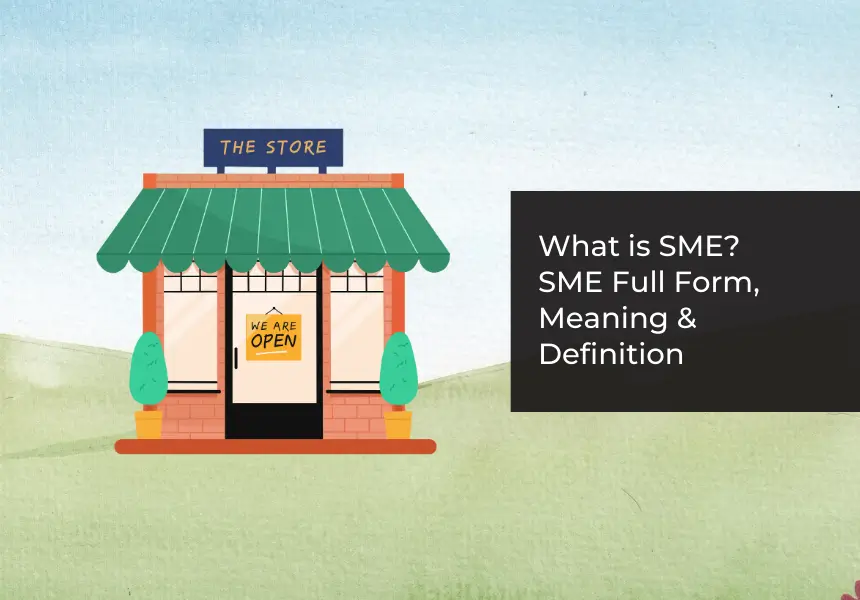
Running a small or medium enterprise (SME) is no easy task. Between managing daily operations, retaining customers, and planning for growth, business owners often find themselves in need of timely financial support. This is where MSME loans play a crucial role. Whether it’s for buying new machinery, funding raw materials, expanding to a new location, or strengthening working capital, an MSME loan can be the difference between stagnation and growth.
But here’s the catch: getting your loan application approved isn’t always straightforward. Lenders carefully assess multiple factors before extending credit. One of the biggest dealbreakers is your creditworthiness, which is primarily reflected in your credit score. Fortunately, improving your profile and preparing well in advance can dramatically increase your chances of approval.
In this blog, we’ll explore practical strategies MSME owners can adopt to strengthen their loan eligibility and improve their chances of approval.
Why Your Credit Score Matters for MSME Loans
A credit score is essentially your financial report card. It tracks your repayment behavior, past borrowing patterns, and overall financial discipline. In India, credit scores are managed by agencies such as CIBIL, Experian, and Equifax, with scores ranging between 300 and 900.
For MSME loans, most banks and NBFCs prefer a credit score of 650 and above. A strong score signals lower risk to lenders and increases your chances of getting approved at competitive interest rates. On the other hand, a poor score may either lead to rejection or result in loans being offered with stricter terms, such as higher interest rates, lower sanction amounts, or additional collateral requirements.
The good news? Your score isn’t fixed forever. With the right approach, you can improve your financial profile and creditworthiness over time.
Steps to Improve Your Chances of MSME Loan Approval
1. Repay Existing Debts on Time
Timely repayment of EMIs, credit card bills, and other dues is the single most important factor influencing your credit score. Even one missed or delayed payment can drag your score down significantly.
Tip: Set up auto-debit instructions with your bank or use digital reminders to ensure you never miss a due date. Consistent repayment builds credibility with lenders and assures them that you’re reliable.
2. Avoid Multiple Loan Applications at Once
Every loan application you submit triggers a hard inquiry by the lender. Too many applications within a short span make you look credit-hungry, which negatively impacts your credit score.
Instead of applying everywhere, do a quick eligibility check online before you proceed. Many lenders, including fintech players, allow you to check your loan eligibility instantly without affecting your credit score. Apply only when you’re confident about meeting the criteria.
3. Maintain a Healthy Credit Mix
Relying only on unsecured loans (such as personal loans and credit cards) may affect your credit profile. Lenders prefer borrowers who can manage a balance of secured loans (like home loans or loans against property) and unsecured loans.
Having a healthy mix shows that you are capable of handling different types of credit responsibly. For MSME owners, leveraging business-related secured credit along with unsecured credit options helps build a stronger profile.
4. Strengthen Financial Documentation
A good credit score alone won’t guarantee approval—lenders also evaluate your financial documentation to assess repayment capacity and business stability. Ensure that you maintain and submit:
- Income Tax Returns (ITRs) for the past 1–2 years
- GST filings showing regular tax compliance
- Bank statements that reflect consistent business activity
- Udyam Registration Certificate for MSME recognition
Timely ITR filing not only strengthens your profile but also builds trust with lenders. It signals stability, which can increase your chances of approval for larger loan amounts.
5. Review Your Credit Report Regularly
Credit report errors are more common than you might think—duplicate accounts, incorrect details, or wrongly reported defaults can all lower your score unfairly.
Checking your report at least once a year helps you spot such discrepancies and get them corrected quickly. All credit bureaus in India allow individuals to download at least one free credit report per year.
6. Build a Long-Term Credit History
Lenders prefer borrowers with a proven history of responsible credit use. The longer and cleaner your credit history, the stronger your profile looks.
Avoid closing old credit cards or loan accounts with positive repayment histories, as they add weight to your score. A long and consistent credit history is particularly valuable for MSME owners, as it demonstrates business and financial stability.
7. Leverage Credit Profiling Tools
Beyond personal effort, MSME owners can also explore modern credit assessment tools that consolidate their financial data. For instance, Business & Individual Credit Risk Indicator (BICRI) is designed to give a transparent overview of your financial health.
By combining data such as PAN, ITRs, revenue records, and business documents, it creates a comprehensive profile that highlights your credit readiness. Such tools not only help lenders assess your eligibility but also empower you, as an MSME owner, to identify gaps and take corrective steps before applying for a loan.
Final Thoughts
Improving your chances of MSME loan approval requires a combination of financial discipline, timely repayment, and well-prepared documentation. While a credit score is an important factor, it’s not the only one—building strong financial credibility, maintaining transparency, and using modern tools for credit profiling can set you apart.
If you’re an MSME owner preparing for your next big leap, now is the right time to work on your credit profile and financial discipline. And when you’re ready to apply, platforms like LoanTap can help you access the right loan products through trusted lending partners, making your borrowing journey smoother and faster.
For MSME owners, a strong credit profile means:
- Faster loan approvals
- Higher sanctioned amounts
- Competitive interest rates
- Greater flexibility for business expansion
With consistent effort, your financial readiness today can pave the way for long-term growth tomorrow.
FAQs on MSME Loan Approval
1. What is the minimum credit score required for MSME loans?
Most banks and NBFCs in India prefer a credit score of 650 or above for MSME loans. However, fintech lenders may offer flexible terms even if your score is slightly lower.
2. Can I get an MSME loan without collateral?
Yes, several lenders provide collateral-free MSME loans based on creditworthiness, repayment capacity, and business profile.
3. How can I check if I am eligible for an MSME loan?
You can use online eligibility calculators or reach out to lenders directly. Fintech platforms like LoanTap also provide quick eligibility checks.
4. Does filing ITR improve my loan approval chances?
Absolutely. Timely and consistent ITR filings signal income stability, business transparency, and financial discipline—all of which boost your chances of loan approval.
5. How long does it take for an MSME loan to get approved?
It varies by lender. While traditional banks may take a few weeks, digital lenders like LoanTap can disburse MSME loans within days if documentation is in order.








